Business
Dangers of Increased ‘Ways & Means’ Loans for Nigeria’s Government
Published
2 years agoon
By
Marcel Okeke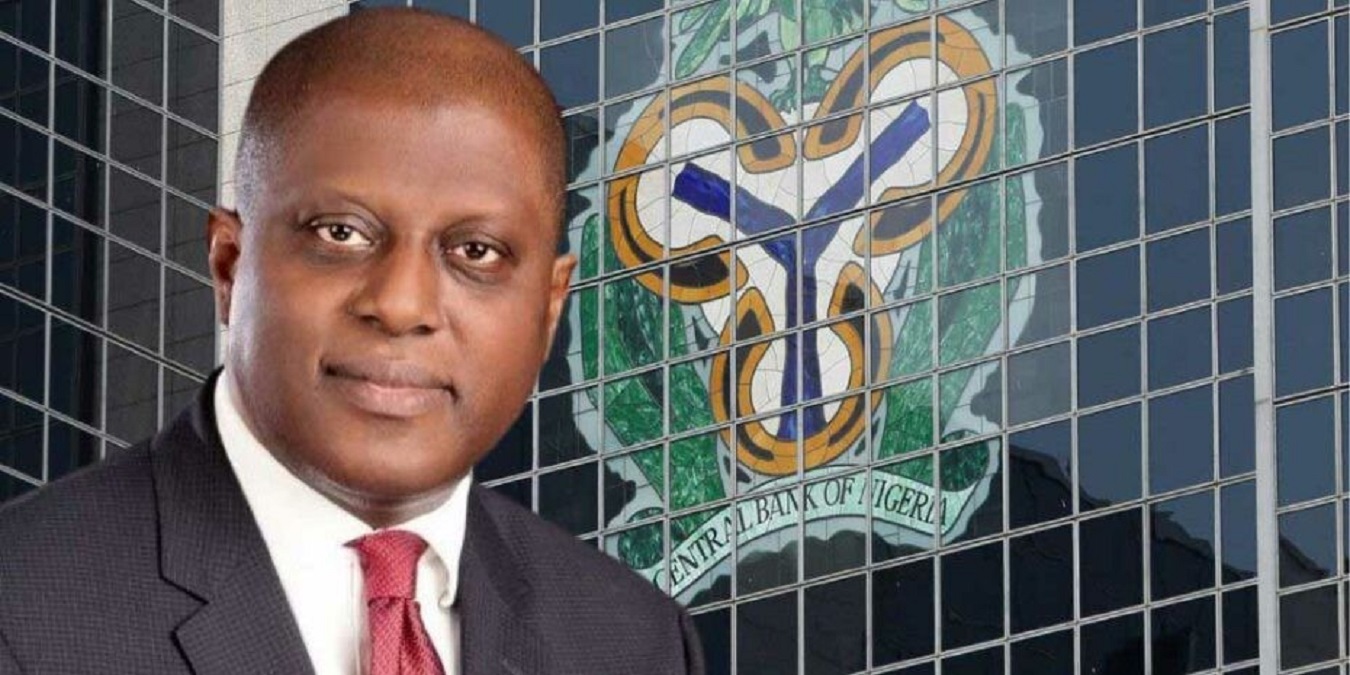
By Marcel Okeke
Despite its desperation to raise revenue inflow, the Bola Ahmed Tinubu administration has, through the approval of the National Assembly, doubled its capacity to draw loans from the Central Bank of Nigeria (CBN) as a ‘Ways & Means’ facility. This was achieved by an amendment to the relevant section of the CBN Act 2007, which restricted such loans to the Federal Government to only five percent of the total revenue in the previous year.
Ways and Means advances are loan facilities the CBN uses to finance the Federal Government during temporary budget shortfalls and have been subject to law-imposed limits. Specifically, Section 38 (1) of the CBN Act 2007 states that “the Bank may grant temporary advances to the Federal Government in respect of temporary deficiency of budget revenue at such rate of interest as the Bank may determine.” Section 38(2) says, “The total amount of such advances outstanding shall not at any time exceed five percent of the previous year’s actual revenue of the Federal Government.”
Truly, the Ways and Means facility from the apex Bank means printing more money not backed by productivity and handing it over to the federal government. Such loans merely increase money in circulation and (by more money chasing few goods postulation) drive up the inflation rate. In other words, such financing distorts the country’s monetary base, resulting in macroeconomic instability as excess liquidity is usually injected into the economy.
Besides the distortions such facilities cause, the more worrisome scenario has been the consistent abuse of the provisions of the CBN Act as it relates to the determination of the amount to be borrowed and the lifespan of the loans. Successive administrations in the country have operated the Act more in breach than observance. Thus, the government keeps taking more from the apex bank unchecked rather than retiring the loans when due. In the past several years, the total amount of Ways and Means outstanding usually outstripped the total government revenues.
The immediate past administration of President Muhammadu Buhari has so far proved the most notorious for abusing the CBN Act as it relates to the Ways and Means provisions. By the close of the eight-year tenure of the administration in May 2023, a whopping sum of N22.7 trillion was the outstanding sum. The gross breach and violation of the Act led to a crisis of how to recognize the huge sum as official public debt of the Federal Government contrary to the CBN Act 2007.
Specifically, available data show that in 2019, actual revenue was N4.12 Trillion, while ways and means stood at N3.3 Trillion, indicating 85.27 percent of N3.87 trillion total revenue in 2018. Similarly, in 2020, actual revenue was N4.04 Trillion, with ways and means standing at N4.4 Trillion, representing 107 percent of the previous year’s revenue. Buhari borrowed seven percent more than the total revenue realized in 2019 from the apex bank.
Yet in violation of the extant laws, the National Assembly, apparently coerced by the Buhari administration, applied what they termed the ‘doctrine of necessity’ and made law to securitize the huge outstanding Ways and Means sum. This caused a quantum jump in the public debt profile of the country, and by June 2023, Nigeria’s total public debt stood at a staggering N87.38 trillion, up from N49.85 trillion in March 2023. This is a jump of over 75 percent, owing to the Ways and Means securitization.
Following President Buhari’s footsteps, Tinubu, in the last week of December 2023, asked the National Assembly to securitize “an outstanding N7.3 Trillion ways and means debt balance.” According to President Tinubu, it is crucial to securitize the federal government’s outstanding ways and means of advance before the end of 2023. He said securitization will lead to the realization of some benefits, such as a reduction of debt service costs.
The long and short of all these is that within the first six months of its lifespan, the President Tinubu administration had taken the huge sum of N7.3 Trillion from the CBN through the ways and means facility. Hence, justifying his plea to the lawmakers for securitization, President Tinubu said: “interest rate for the securitized ways and means is lowered to nine percent compared to the MPR plus three percent that was previously adopted.”
Although the National Assembly did Mr. President’s bidding and made law securitizing the N7.3 Trillion in ways and means outstanding by the end of 2023, the Government continued to face the challenge of acute dwindling revenue. The Executive Bill requesting the doubling of the Federal Government’s access to the Ways and Means facility from five to ten percent of the previous year’s total income is proof of the exigency.
The federal government’s retroactive resort to levying the controversial “windfall tax” on banks is also largely due to the pressure of the government’s low revenue profile. In an unprecedented move, President Tinubu had asked the National Assembly to amend the 2023 Finance Act to enable the Federal Government to take fifty percent of the so-called windfall profit the deposit money banks (DMBs) made in 2023 owing to the massive Naira devaluation.
However, even if covertly, the Federal Government got the Lawmakers to hike the tax rate to 70 percent for a period of three years (2023—2025), as against the “one-off” (2023 alone) that the President requested. This quest for improved revenue that led the Government to this bind is obviously at the root of asking for a doubling of its capacity for loans through various means.
Given the abuses that have attended access to ways and means these past years, it becomes a cause for worry that rather than adopting other creative ways of increasing revenue, the Federal Government wants to rely more on loans from the CBN. Indeed, it is patently wrong to explain that such loans from the apex bank are to enable the Government to prosecute infrastructural projects. Ways are means facilities are really for “temporary shortfalls” in the Government’s budgeted revenues.
Experience shows that such autonomous injections (ways and means) go straight to drive up inflation. In recent months, the Governor of the CBN himself, Mr. Olayemi Cardoso, had blamed the subsisting runaway inflationary trend in Nigeria partly on the effect of the huge loans obtained by the President Buhari administration from the apex bank. Truly, pumping more cash into the economy simply by ordering the CBN to print more money is disingenuous and harmful to the economy.
Such huge borrowings, whether securitized or not, go a long way in the accretion of the nation’s public debt. This largely accounts for why Nigeria’s total public debt rose by N24.33 trillion or 25 percent, from N97.34 trillion as of December 2023 to N121.67 trillion in March 2024. Incidentally, the Debt Management Office (DMO) attributed this rise in debt to “new domestic borrowing by the Federal Government to partly fund the deficit in the 2024 budget as well as disbursements by multilateral and bilateral lenders.”
Now that the leeway to easy ways and means loans has been widely expanded for the Federal Government, the Nigerian economy has been unwittingly opened to the dangers of an avalanche of cash injection by the apex bank. Ultimately, the resultant high volume of money in circulation and the consequent inflation leave the citizenry with a drop in purchasing power and impoverishment. On the other hand, this leaves the apex bank perpetually fighting inflation alone by endlessly raising the Monetary Policy Rate (MPR), as the CBN has been doing in the past year. To where will this take the economy?
- Okeke is a National Daily Columnist, a practicing Economist, a Business Strategist, a Sustainability expert, and an ex-chief Economist at Zenith Bank Plc, and can be reached via [email protected] (08033075697 SMS only).
You may like
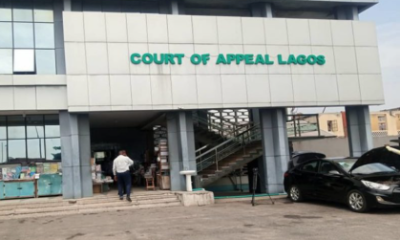

Appeal Court nullifies Emefiele’s asset forfeiture, Orders retrial


Naira gains 1.28% in official market in May amid oil price risks, currency volatility


Tinubu: Diaspora APC chieftain tasks local banks on reforms
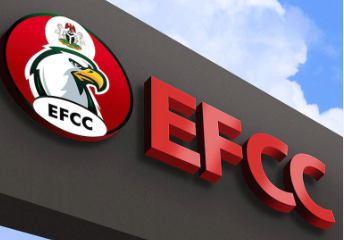

Alleged corruption: EFCC witness details wow Emefiele allegedly received $17.1 million in cash
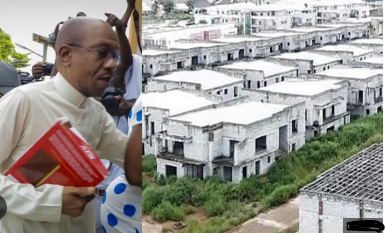

FG to auction 753 housing units forfeited by Ex-CBN Gov. Emefiele in Abuja
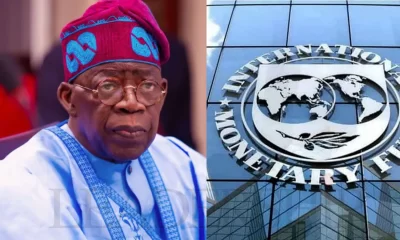

Nigeria’s debt rises to N74.38trn, $44.9bn despite IMF loan repayment
Trending

 Health5 days ago
Health5 days agoDeclassified CIA memo explored concealing mind-control drugs in vaccines

 Entertainment1 week ago
Entertainment1 week agoSimi addresses resurfaced 2012 tweets amid online backlash

 Crime6 days ago
Crime6 days agoSenior police officers faces retirement after Disu’s appointment as acting IGP

 Education1 week ago
Education1 week agoPeter Obi urges JAMB to address registration challenges ahead of exams

 Health1 week ago
Health1 week agoNAFDAC issues alert on suspected revalidated SMA Gold infant formula

 Comments and Issues7 days ago
Comments and Issues7 days ago20 Critical Fixes to Save Nigeria’s Democracy from Electoral Fraud

 Football7 days ago
Football7 days agoMartínez ruled out of Everton clash with calf injury

 Latest6 days ago
Latest6 days agoICPC yet to respond to El-Rufai’s bail request as arraignment date looms

